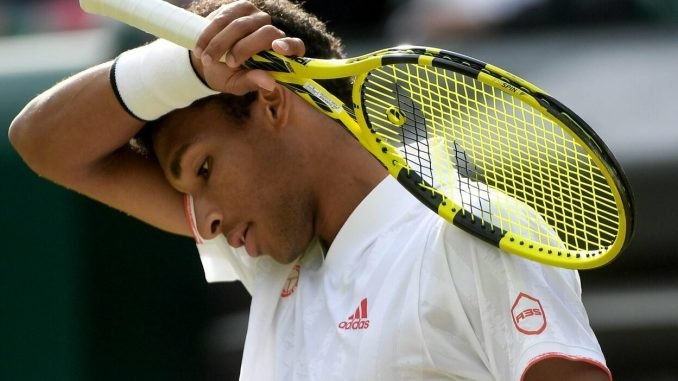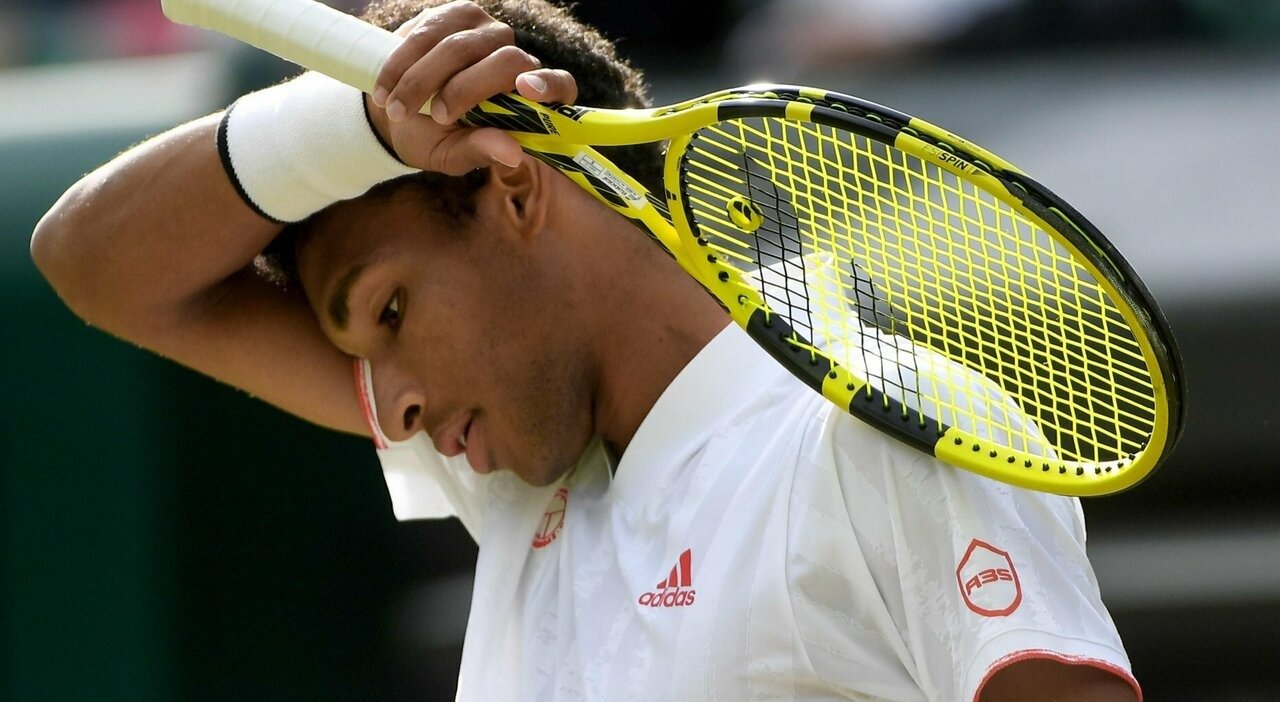
The recent match between Felix Auger-Aliassime and Jack Draper at the Cincinnati Open became a focal point of controversy in the tennis world, sparking reactions from numerous top players and analysts.

The incident that fueled this discussion occurred when Draper appeared to gain a crucial advantage due to a questionable call during a pivotal moment in the match.
The controversy centered around Draper’s challenge of a line call that seemed out of place and raised questions about the fairness and consistency of such decisions.
### The Match and Incident Overview
In a tightly contested match, Draper and Auger-Aliassime battled hard, with both players delivering impressive performances. However, the drama escalated late in the match when Draper challenged a call that appeared to be well outside the allowable time frame.
Despite this, the chair umpire allowed the challenge, which led to the reversal of the original call, granting Draper a key point. Auger-Aliassime, visibly frustrated, protested the decision, arguing that the challenge was invalid. The decision disrupted his momentum and ultimately tilted the match in Draper’s favor, with the young Brit winning the contest.
### Reactions from Tennis Stars and Analysts
The aftermath of this incident triggered a wave of responses from tennis players, commentators, and fans alike, with many questioning the decision-making process and the potential inconsistencies in the application of rules.
**Novak Djokovic** was one of the first high-profile players to weigh in on the situation. In a post-match interview, Djokovic emphasized the need for more stringent and transparent protocols regarding challenges and line calls.
He highlighted that while technology like Hawk-Eye has significantly reduced errors, it’s still up to the chair umpire to enforce time limits and ensure that challenges are made fairly. Djokovic also suggested that the incident highlights how mental composure in high-pressure situations can be affected by questionable officiating.
**Chris Evert**, a former tennis legend and now a prominent analyst, voiced her concern on social media, stating that incidents like these undermine the integrity of the game.
Evert noted that while Draper didn’t break any rules on paper, the enforcement of the challenge timing was inconsistent, which led to unnecessary controversy. She called for clearer guidelines and suggested that the ATP review such situations more rigorously to avoid future disputes.
**Andy Murray**, who has long been vocal about fairness in the sport, chimed in with a more nuanced take. Murray pointed out that while Auger-Aliassime was justified in his frustration, it’s essential to remember that the chair umpire’s decision is final and players must adapt to such moments.
He added that tennis is filled with unpredictable situations, and while some may feel unfair, the focus should always remain on the bigger picture: performing under pressure regardless of circumstances.
### Broader Debate on Officiating and Fair Play
The controversy also ignited broader discussions about the state of officiating in tennis. Many analysts raised concerns that despite the advancement of technology, the human element in decision-making still leaves room for error.
There was widespread agreement that clearer, more consistently enforced rules regarding challenges, particularly during critical points, are necessary. Some even suggested that the ATP should consider implementing automatic challenge windows or stricter enforcement of time limits to prevent such disputes.
Furthermore, fans and analysts pointed out that such incidents can heavily influence the outcome of matches, especially in tightly contested battles where every point matters.
The match between Auger-Aliassime and Draper showcased how a single decision, rightly or wrongly, can shift momentum and potentially change the course of a tournament.
### Felix Auger-Aliassime and Jack Draper’s Reactions
In his post-match press conference, Felix Auger-Aliassime expressed disappointment not only in the decision but also in how it affected his mindset.
He noted that while he tried to refocus, the inconsistency in officiating took him out of the zone.
Auger-Aliassime maintained his professionalism, acknowledging Draper’s solid performance but reiterated his belief that the timing of the challenge should have been better handled.
Jack Draper, on the other hand, remained measured in his response, stating that while the challenge was within the rules as interpreted by the chair umpire, he understood why his opponent and fans might be upset.
Draper stressed that tennis is a fast-paced game where split-second decisions can have significant consequences, and he respected Auger-Aliassime’s reaction.
### Conclusion
The fallout from the Auger-Aliassime vs. Draper controversy at the Cincinnati Open has reignited discussions on the need for more consistent officiating in tennis.
Reactions from top players like Novak Djokovic, Chris Evert, and Andy Murray underline the importance of fair play and the psychological impact that questionable decisions can have on players.
As the debate continues, the incident serves as a reminder that even in a sport increasingly reliant on technology, the human element remains a significant variable in the outcome of matches.
The ATP may take this controversy as a cue to review its rules and procedures, ensuring that the sport maintains its integrity while minimizing the chances of similar disputes in the future.
Leave a Reply